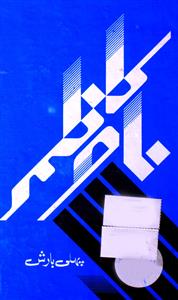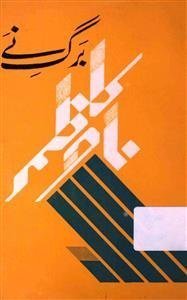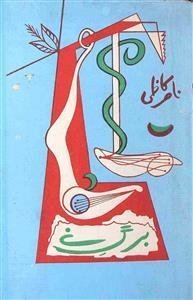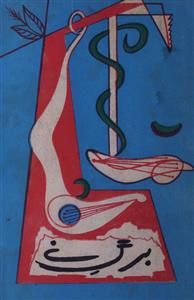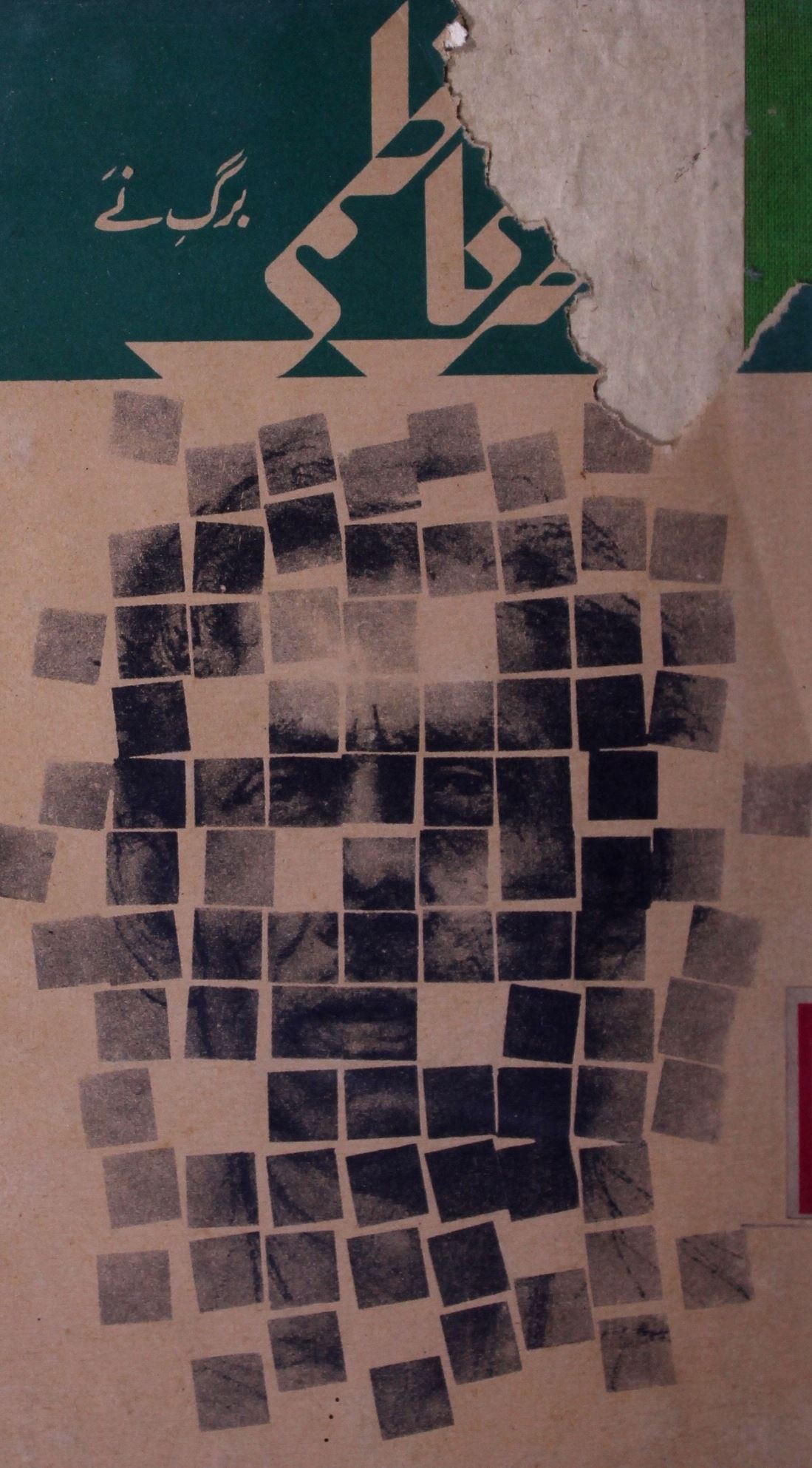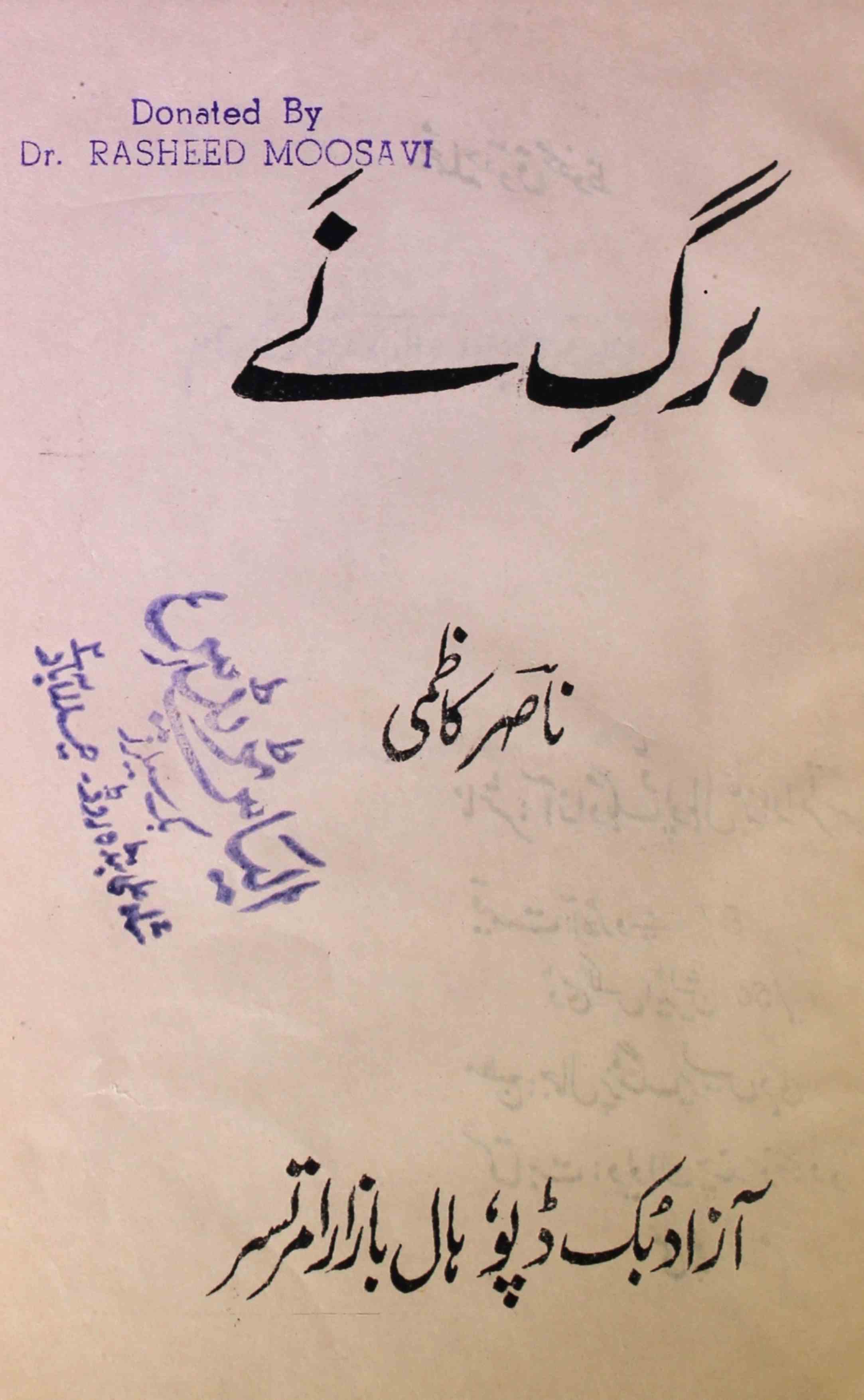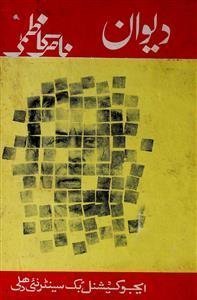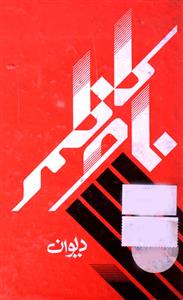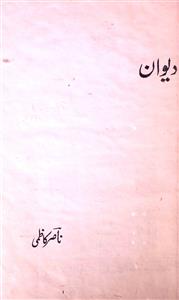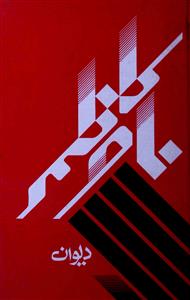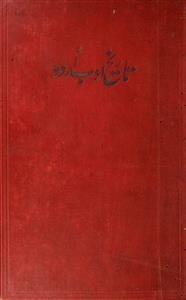 For any query/comment related to this ebook, please contact us at haidar.ali@rekhta.org
For any query/comment related to this ebook, please contact us at haidar.ali@rekhta.org
About The Book
"میر جدید" كہلانے والے عہد ساز شاعرناصر كاظمی كی شاعری لطیف انسانی جذبات و احساسات كی بہترین ترجمان ہے۔ناصر نے اپنے منفرد اسلوب اور طرز احساس كی تازگی كے باعث سب سے زیادہ مقبولیت حاصل كی۔"پہلی بارش "ناصر كاظمی كے غزلوں كا مجموعہ ہے۔جو ان كے بعد ازوفات منظر عام پر آیا۔جس میں شامل كلام ناصر كے ادبی مقام كے تعین میں اہمیت كا حامل ہے۔ناصر كاظمی كا شمار جدید غزل كے معماروں میں كیا جاتا ہے۔جدید غزل كواپنے منفرد لب و لہجہ سے ادبی معراج عطا كرنے والے اس شاعر نے پیروی میر میں سہل ممتنع میں اپنے درد و كرب ،اطراف كے سانحات كو پیش كیا ہے۔ چھوٹی بحروں میں ان كے اشعار اپنی نغمگی ،رومان اورلطافت كے ساتھ دھیرے دھیرے دل كی دنیا میں احساسات كی لہروں كے ان گنت دائرے بناتے ہیں۔ سادہ اسلوب ،قادراالكلامی ،ندرت خیال،سچے جذبا ت و احساسات،ان كے كلام كی وہ خصوصیات ہیں جس نے اردو غزل كےدامن كو وسیع كیا ہے۔ "پہلی بارش" كی ایك خصوصیت یہ بھی ہے كہ اس كی تمام غزلیں ایك ہی زمین میں ہیں۔ ان كی غزلیں ذاتی كرب اور جدید انسان كے مسائل كی عكاسی كرتی ہیں۔جس میں دكھ كی ہلكی سی سلگتی ہوئی آنچ ہے۔ناصر نے استعارے لفظیات كے پیمانے تو عشقیہ ركھے لیكن اس كے باطن میں محض عشق نہیں بلكہ ہجرت،جدید دور كے مسائل ، انسان كے باطن كا كرب اور دوسری بہت سی چیزیں پنہاں ہیں۔ان كی لفظیات اور حسیات كے پیمانے رومانوی ہونے كے باوجود ان كا كلام عصر حاضر كے مسائل سے جڑا رہا۔یہی وجہ ہے كہ وہ اپنے رومانوی لب و لہجہ كی بدولت نوجوانوں میں مقبول ہیں اور اپنے تہہ دارتعقل كے باعث غزل كے سنجیدہ قارئین كی توجہ حاصل كرنے میں قادر ہیں۔ناصر نے برصغیر كی آزادی كے ہنگاموں كو دیكھا ہجرت كا درد سہا،نئی سرزمین میں جہاں ان كے دل میں ہجرت كا كرب سما گیا تھا،وہیں تقسیم ہند كے خون ریز واقعات نے ان كی روح كوجھنجوڑ دیا تھا۔ان كی ہر غزل ان كے دكھی دل كی داستاں بیان كررہی ہے۔ان كے كلام میں احساسات كی تاثیر،لفظوں كا آہنگ اورموزوں نشست ، منفرد اور دلوں كوچھولینے والا اسلوب بیاں ہی ہے كہ آج بھی ناصر كاظی اہل اردو میں مقبول عام ہیں۔ان كے كئی اشعار زبان زد خاص و عام ہیں۔
About The Author
Nasir Kazmi was born on December 8, 1925 in Ambala. His real name was Syed Nasir Raza Kazmi. Her father Syed Muhammad Sultan Kazmi was a Subedar in the Army and his mother was an educated woman and a teacher at the Mission Girls School in Ambala. Nasir studied at the same school until the fifth grade. Later, under the supervision of his mother, he read books like Gulistan, Bustan, Shahnameh-e-Ferdowsi, Qissa-e-Chahar Darwish, Fasana-e-Azad, Alif Laila, and Urdu Poetry. The influence of fictional literature read in childhood is also found in his poetry. Nasir passed 6th class from National School Peshawar and 10th class from Muslim High School Ambala. He had enrolled in Lahore Government College for BA, but had to drop out due to the turmoil of partition. He arrived in Pakistan in a state of extreme depression. Nasir started writing poetry at an early age.
At a time when ghazal-writing became few and sparse, Nasir Kazmi emerged as a unique ghazal composer who not only revived ghazals, but also amazed his readers with the beauty of nature and the universe, with his creative essence. After the partition of the country, Nasir Kazmi emerged as a poet who succeeded in restoring the creative character of ghazal to its fullest. The new generation of poets feel the expression of Nasir Kazmi close to their hearts and souls because the new poetry has moved away from collectivism and has become deeply attached to private life. As a result of this tendency, Nasir Kazmi, compared to poets who preach humanity and collectivism, feels more realistic and tangible.
Nasir’s early influences were Mir Taqi Mir and Akhtar Sherani. In his poetry, love has played a major role. Nasir, who lived in a large mansion in Ambala, had to live for ten years in a dilapidated house in old Anarkali in Lahore. After emigrating, they were unemployed and helpless. His parents could not bear the horrors of partition and its aftermath for long and died. Nasir held small jobs in the welfare department and the agriculture department. Then one of his sympathizers made a concession to the rules and got him a job in Radio Pakistan and he remained associated with it for the rest of his life. But as many jobs as he did, he did reluctantly; discipline and Nasir Kazmi were opposites. He had not learned to work hard, so despite his passion, he could not learn music and painting. He was convinced to immerse himself in the beauty of nature like a free bird and to sing songs about his emotions and experiences. He called poetry his religion.
Nasir was extremely careless and an enemy of his own life. He had heart disease since the age of 26 but never abstained. Chain-smoked, went to any roadside chain and ate anything and everything, and drank tea dozens of times a day. Due to this perpetuated negligence, he got stomach cancer in 1971 and died on March 2, 1972. But before passing away he left his readers with a treasure trove of poetry and literature.
After ‘Barg Ne’, his two collections "Diwan" and "Pahli Barish" were published. Then a collection of his Nazms ‘Khwab-e-Nishat’ came to the fore. He also wrote a drama series "Sur Ki Chhaya". As well as being a poet, he was also a good prose writer. During his radio career, he wrote sketches of classical Urdu poets which became very popular.
There is a strange charm in both Nasir Kazmi's personality and poetry. Despite his traditional vocabulary, he embellished the ghazal with his style and rarity. He wrote poetry above ideological leanings, so his field of poetry is wider and more diverse than others, in which love is central. All his poetry is a wonder in which the one who enters is lost in its enchantment for a long time. He used a very simple, everyday language for poetry and prose expression. The magic of his poetry speaks volumes. His prose is as simple but profound as his own. He asserted his existence in the a soft and whispered tone, and freed the Urdu ghazal from cliches, exploited its hidden possibilities and brought it to the new threshold of creative perfection.
 For any query/comment related to this ebook, please contact us at haidar.ali@rekhta.org
For any query/comment related to this ebook, please contact us at haidar.ali@rekhta.org
Write a Review
Jashn-e-Rekhta 10th Edition | 5-6-7 December Get Tickets Here
